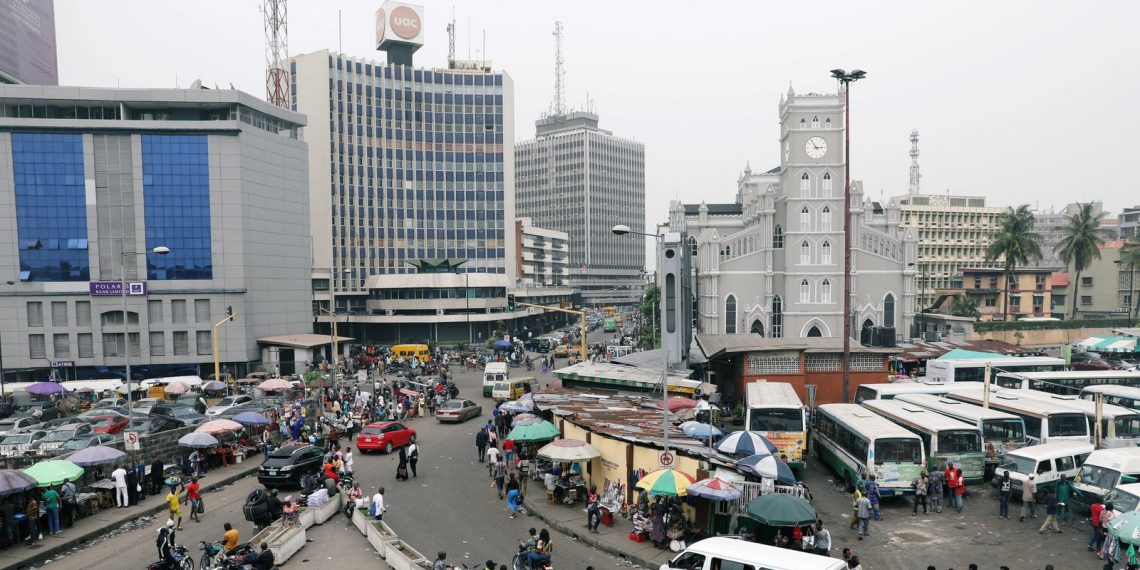NESG outlines four priority areas for Nigerian economy in 2021 and beyond

The Nigerian Economic Summit Group (NESG) has identified four key areas of the Nigerian economy which it says the Federal Government must address starting this year.
The Group describing the areas pointed out in its 2021 Macroeconomic Outlook Report as ‘priority areas,’ NESG noted that the government’s decision to address them will form the foundation for the country’s economic recovery in the short term and inclusive economic growth in the future.
- Advertisement -
Read More:
- Advertisement -
The four (4) priority areas according to NESG include; Macroeconomic stability, policy and regulatory consistency, sectoral reforms and human capital development.
Priority 1: Macroeconomic stability
According to NESG, Nigeria’s poorly diversified economy is reflected in its heavy reliance on the oil sector, which is fundamentally prone to shocks and fluctuations, and on the account of that the country is subjected to many shocks that trigger macroeconomic instability and adverse socio-economic outcomes.
Notwithstanding the country’s extraordinary economic growth episode in the first decade of the 2000s, NESG argues that, Nigeria’s unstable macroeconomic environment seems to have eroded the benefits achieved during the high growth era.
Assessing Nigeria using the ‘Maastricht Indicators’ confirmed that the country has a volatile macroeconomic environment – steep economic growth, acute foreign exchange (forex) shortages and volatility, and deteriorating current account position,” noted the report.
Priority 2: Policy and regulatory consistency
NESG in its report, noted that Nigeria has faced a series of challenges that have hindered economic prosperity and inclusive development.
Some of these challenges the Group pointed out include insecurity, deep-rooted corruption, deepening poverty & inequality, dwindling domestic and foreign investment and exacerbating socio-economic conditions.
According to NESG, at the core of Nigeria’s policy and regulatory issues is policy misfit and regulatory inconsistency or overlaps. Policy misfit is a situation where a strategy or policy designed to address a specific issue does not consider the dynamics of interactions economic agents and therefore worsens the exiting condition or creates new challenges.
“Ideally, public policies are influenced by the condition of the economy, technological changes, goals of the nation, research findings and political activities, among other factors. In Nigeria, these factors are important, but the policy making and delivery process remains a challenge that has, overtime, inhibited growth and development of the country,” said the Group.
In numerous occasions, crucial decisions that affect businesses are made without proper consultation of stakeholders and without consideration of evidence and research. Impulse, rather than evidence, is a major factor that drives policy making in Nigeria. A clear example is the closure of the land border, which was swiftly implemented without a clear and documented analysis of the potential winners and losers; the duration of the closure as well as needed reforms to position local industries to take advantage of the closed borders,” added the Group.
Priority 3: Sectoral reforms
The third priority area NESG advised the Nigerian government to tackle going forward is the country’s investment sector.
- Advertisement -
“The poor performance across many sectors is a strong reflection of dousing investment. Investment in Nigeria has remained below potential. All through the last decade, the country’s real investment as a percentage of GDP was below 20 percent – this share is significantly low compared with those of fast-growing economies such as China (43 percent) and Indonesia (33 percent).”
“In terms of foreign investments, FDIs have consistently fallen under $1.5 billion per annum since the year 2016, a meagre amount when compared with that of countries like Indonesia, Malaysia and Brazil.”
“Principal factors contributing to this stunted investment growth include harsh business environment, policy inconsistency and regulatory bottlenecks. Data from the National Bureau of Statistics (NBS) showed that of the economy’s 46 activity sectors, only three accounted for 92.2 percent of economic growth from 2015 to 2019.”
These sectors are Telecommunication & Information Services (37.7 percent), Crop Production (37.2 percent) and Crude Petroleum and Natural Gas (17.3 percent). Meanwhile, the remaining 43 sectors scrambled for 7.8 percent, as they underperformed their potentials. Notably, the Trade and the Real Estate sectors with substantial shares in overall GDP were the major growth suppressors during the period,” read the report.
Priority 4: Human capital development
Given the key goals of achieving economic recovery in 2021, NESG posits that in sustaining growth into the future, it is imperative that Nigeria invests in its human capital development.
NESG asserts that the sudden outbreak and rapid spread of the coronavirus pandemic has not only overstretched the country’s healthcare system but has also tested the resilience of the education sector adding the pandemic has further highlighted the need for both health and education sectors to continuously adapt to a changing environment characterised by limited physical interactions.
NESG further advocated that government intensify the pace of reforms in both the health and education sectors for the following reasons:
• Health insurance coverage is low, thereby reflecting the predominance of out-of-pocket spending on healthcare services.
• COVID-19 has disrupted global supply chains, thereby causing irregular medical supplies; hence, the need to have a robust healthcare industry that could leverage inter-sectoral linkages to ensure the local production of drugs and other medical equipment.

• The coronavirus pandemic has overwhelmed the capacity of the health system, requiring the expansion of the healthcare infrastructure and the need to ensure personnel adequacy.
• The current school curriculum is not designed to empower the youths with skills needed in the workplace or skills needed to contribute positively to the society.
• Most social unrests are usually a direct consequence of higher unemployment and underemployment among the youths in Nigeria.
• The outbreak of COVID-19 has made it imperative to promote digital learning following schools’ closure across the world, including Nigeria.
- Advertisement -


